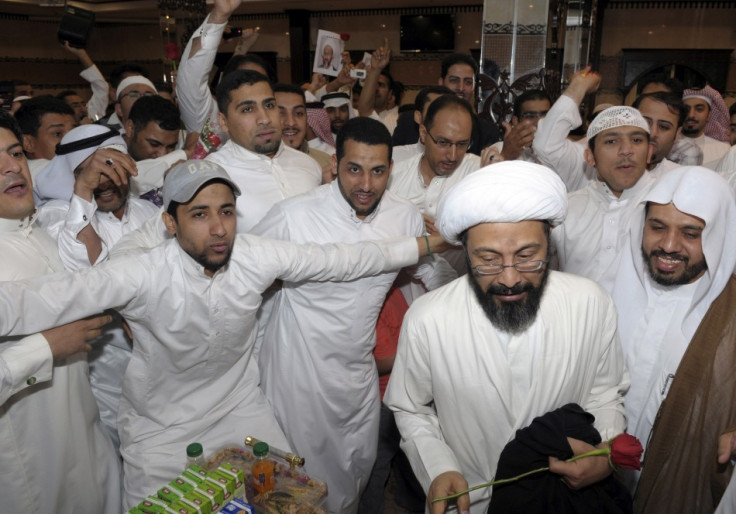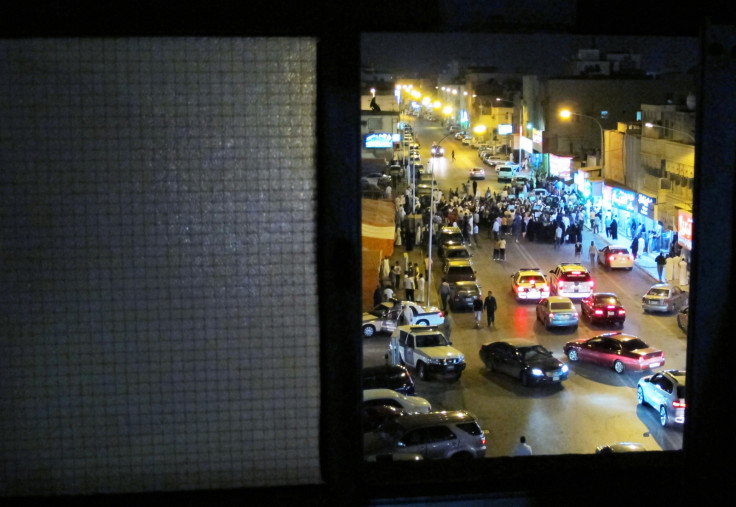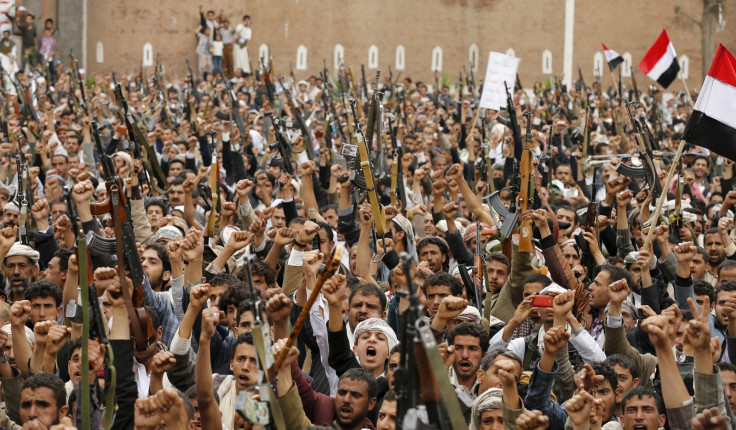Saudi Arabia's Shia and Riyadh's other war - 'The language of hatred is getting worse'

The Arab Spring brought into the global consciousness struggles against dictatorships in Bahrain, Egypt, Tunisia and Libya, but the forgotten uprising of the wave of revolutions that swept the Middle East in 2011 occurred in a balmy corner of the world's biggest oil producer.
In March 2011, thousands of Shia took to the streets in Qatif, Saudi Arabia, to protest decades of discrimination and religious and political repression, beginning an uprising that was met with a violent crackdown, a wave of arrests and cases of police firing on unarmed protesters.
Since then, 27 have been killed and more than 250 imprisoned, according to local Shia leaders and human rights activists in the towns and cities of eastern Saudi Arabia, who fear rising sectarianism fuelled by Riyadh's war against Shia Houthi rebels in Yemen.
There are 2.7 million Shia in Saudi Arabia, making up 12% of the population, with most living in al-Ahsa and al-Qatif districts in the country's eastern province, which also contains the bulk of the kingdom's oil. Ruled by a Sunni monarchy and under a strict interpretation of Islam, Wahabbism, Shia are often portrayed as heretics or agents of Riyadh's major rival, Iran.
A 2009 report by Human Rights Watch alleged widespread discrimination against Saudi Shia, including heavy restrictions in the state education system, where Shia students were forbidden from learning about their religion and told they were unbelievers by Sunni teachers.
It added that judges often banned Shia witnesses during trials because of their faith and barred Shia from taking jobs in government ministries or the military.

"The Saudi government has long regarded its Shia citizens through the prism of Wahhabi dogma or state stability, branding them as unbelievers or suspecting their national loyalties," said Sarah Leah Whitson, Middle East director at Human Rights Watch.
It was anger over this situation that led to the Shia uprisings of 2011, which continued into 2012 and resulted in the deaths of 20 protestors.
A prominent Shia activist, Sheikh Nimr al-Nimr was detained and then sentenced to death on terrorism charges as well as "waging war on God".
The Saudis imposed road blocks around the major flash points and information about the uprising only leaked out intermittently on YouTube, with videos showing hundreds of Shia carrying placards that called for the downfall of Saudi Arabia's ruling Al Saud family and anti-government slogans daubed on the walls of houses and state buildings.
'It is a language of hatred [and] it is getting worse because of the war.'
The graffiti was still there in 2014, said Human Rights Watch Middle East researcher Adam Coogle, even if the protests that followed the Arab Spring had subsided in the face of arrests and heavy jail sentences for activists. The lot of Saudi Arabia's Shia remains as grave as ever, he said.
"We've been at a low point since 2011, and even before. Nothing as far as Shia and their demands for an end to discrimination has changed. If anything it has got worse," he said.
Saudi Arabia recently set up a special court to deal with 'terrorist offences'. It has sentenced dozens of activists and even journalists to long prison terms. Last year, a fixer working with Reuters received a 15-year jail sentence, and protesting is now a terrorist offence.
Perhaps it is this that has prevented protesters from taking to the streets over the Saudi war in Yemen, the sectarian and anti-Shia element of which has been stoked by Riyadh's claim that Iran is backing the Houthi rebels.
'Nothing as far as Shia and their demands for an end to discrimination has changed. If anything it has got worse.'
On Sunday the death of a Saudi Arabian police officer and injuring of three others in a gun battle in al-Awamiyah, in Qatif Province, provoked speculation of a new uprising in the east coast, but Jafar Al Shayeb, a member of the Qatif municipal council and a human rights activist, said that the incident was not connected with the war in Yemen or the human rights movement.
But he did say that the war against the Houthi rebels in Yemen had raised fears amongst Saudi Shia of a sectarian backlash. In November 2014 eight Shia worshippers were killed in an attack on a shrine in the city of al-Ahsa, he said, and rhetoric from Wahhabi preachers was increasing.
The sectarian dimension of the war in Iraq – where Shia militias are fighting to liberate Sunni cities from Islamic State (Isis) was also stoking divisions in Saudi Arabia, he said.
"[The attack in al-Ahsa] comes as a result of the sectarian discourse that is going on in the region. It is a language of hatred [and] it is getting worse because of the war," said Al Shayeb.

Al Shayeb said that even if Shia in Saudi Arabia are opposed the war in Yemen – and he said that not all feel the same – they are unlikely to take to the streets to vent their anger given the government crackdown of the last four years.
"People are in a different mood than three years ago. They [realise] that they have got no results from protesting. Even here, the conclusion [has been] that better communication with local officials is a better means for them to achieve what they are looking for, instead of confrontation with the police forces," Al Shayeb told IBTimes UK from his home in Qatif.
"People have paid a high price and they have concluded that with the measures that the government is taking it will be very difficult for them to continue."
But he added that while protests have died down, Saudi Shia will continue to push for more freedoms. "People have complaints and demands for tolerance and equality and they will continue to make clear their issues," he said.
Toby Matthiesen, a researcher at the University of Cambridge and author of two books on Saudi Arabia's Shia community, Sectarian Gulf and The Other Saudis, said that it may be the military might of Riyadh that would prevent Shia from taking to the streets again.
"[The war] is certainly not good for sectarian relations in Saudi Arabia but will it lead to a new uprising? I don't think so," he said.
"Fundamentally the people there know that alone, without the support of other parts of the country, they really can't do very much, and now that the military is so mobilised, compared to what they are doing in Yemen, Awamiyah is not such a big place. Even if a large armed uprising were to take place the Saudis would probably have the capabilities to repress it."
© Copyright IBTimes 2025. All rights reserved.






















